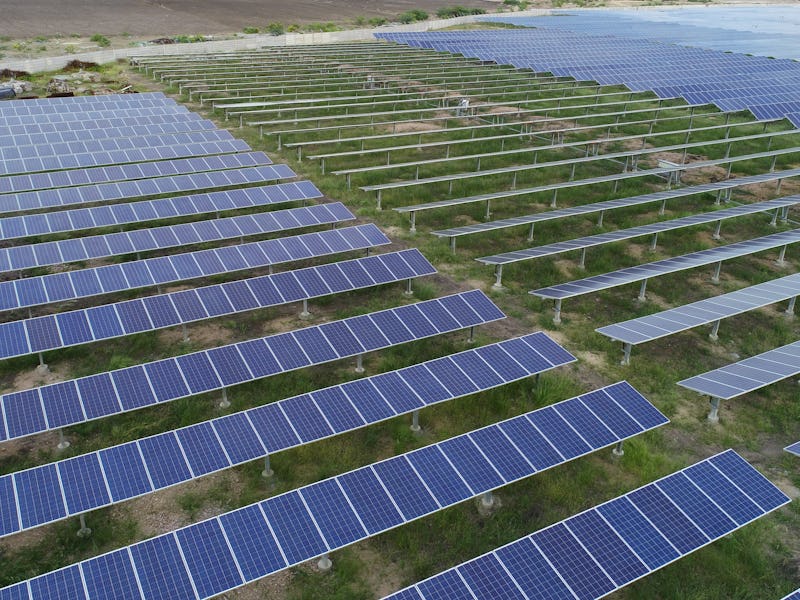Amazon just made some big investments into renewable energy
Amazon is committing to going carbon neutral by 2040, but some say that's not ambitious enough.

Global warming isn't going away just because there's another calamity in the news right now. It's still a giant project that will require massive infrastructure changes. To that end, on Thursday Amazon announced it is making large investments into solar and wind energy as it attempts to go carbon neutral by 2040. The company is investing in a solar project in Australia, the United States and Spain. It's also investing in an onshore wind energy project in Sweden.
Amazon is investing in a 60 megawatt (MW) solar project in Australia, a 50 MW solar farm in Spain, a 65 MW solar project in the United States and a 122 MW onshore wind project in Sweden. Amazon’s new HQ2 headquarters will also be partially powered by solar energy.
The retail giant announced its plans to go carbon neutral by 2040 last year. Amazon Web Services' (AWS) data centers use a lot of energy, so the company is trying to make sure that doesn't mean it's doing damage to the climate.
"Once complete, the four new Amazon renewable energy wind and solar projects will provide almost 300 MW and approximately 840,000 MWh of additional renewable capacity to the grids that supply energy to the company’s AWS data centers, which power Amazon and millions of AWS customers globally," the company said in a press release.
Amazon claims it has launched 26 utility-scale wind and solar renewable energy projects that will generate 6.2 million MWh of clean energy every year thus far. The company says that's enough energy to power over half a million homes in the United States.
Kara Hurst, vice president of sustainability at Amazon, said in a statement that the company's goals are in line with the goals of the Paris Agreement.
“We’re on a mission to meet the Paris Agreement 10 years early as part of The Climate Pledge commitment to be net zero carbon across our operations by 2040. These new renewable energy projects are part of our roadmap to 80% renewable energy by 2024 and 100% renewable energy by 2030,” Hurst said. “In addition to the environmental benefits inherently associated with running applications in the cloud, investing in renewable energy is a critical step toward addressing our carbon footprint globally.”
Though all of this is positive, many feel Amazon's efforts don't go far enough. A group of Amazon's own employees, the Amazon Employees for Climate Justice, have been saying that the company should be carbon neutral a decade sooner than it's planning. They've also expressed dismay over the fact AWS has aggressively sought contracts with fossil fuel companies.
Amazon CEO Jeff Bezos announced in February that he'd be dedicating $10 billion to set up an organization called the Bezos Earth Fund that will support climate research, activism and more. In response to this news, the Amazon Employees for Climate Justice said in a statement that this is a positive step forward but that he should also abandon those fossil fuel industry contracts.
See also: Bill Weihl made Facebook green. Now he's eyeing a bigger fight.
Amazon isn't alone in the tech world when it comes to pledging to become more sustainable while also working with the fossil fuel industry. Google and Microsoft also have contracts with large oil and gas firms. Some of their employees joined Amazon employees and attended a major climate strike last year. These companies want to fight climate change but often do things that contradict that effort to make more money.
The Inverse analysis
While Amazon pursuing contracts with fossil fuel companies is disappointing, it's great that the company is sticking to its commitment to investing in renewable energy. It's also great that Bezos is putting up his own money to invest in fighting climate change. There are places these types of companies can improve when it comes to climate issues, but it seems public pressure has made them feel it's necessary to invest in green energy. Maybe they've realized they won't have any customers if climate change kills us all.